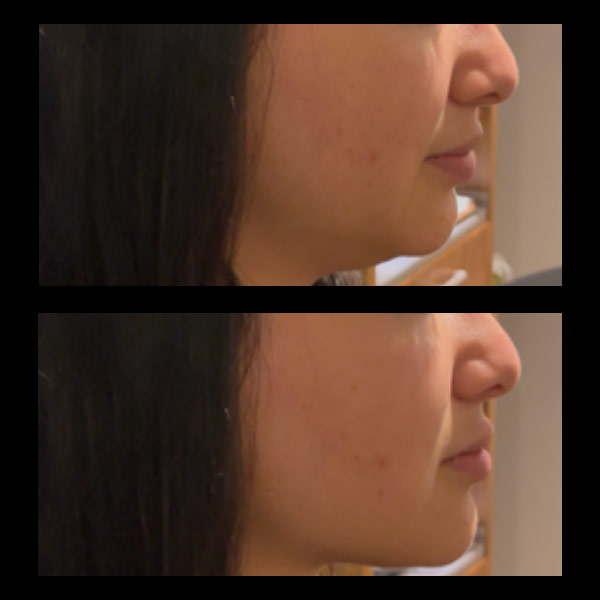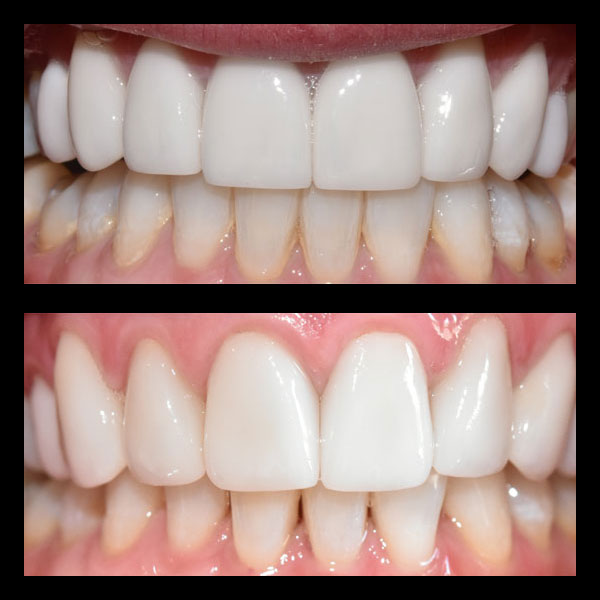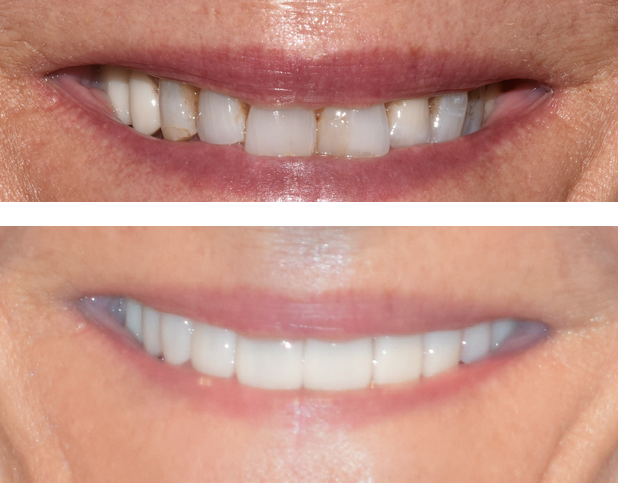Preserve Your Investment: A Guide to Lasting Veneers and Bonding
Investing in dental veneers or bonding is a significant step towards achieving the smile of your dreams. These cosmetic dental solutions can dramatically enhance your appearance, boosting your confidence and overall well-being. At Incredible Smiles, we’re dedicated to helping you not only achieve a beautiful smile with treatments like porcelain and minimal prep veneers or dental bonding, but also maintain it for years to come. Proper at-home care is paramount to ensuring the longevity and brilliance of your new smile. This guide provides essential tips to help you preserve your veneers and bonding, keeping them looking their best.

Keep your smile radiant with proper at-home care for veneers and bonding.
Understanding Veneers and Bonding
Dental veneers are thin, custom-made shells, typically made of porcelain or composite resin, designed to cover the front surface of your teeth. They are an excellent solution for correcting a variety of dental imperfections, such as discoloration, chips, gaps, or minor misalignment. Dental bonding, on the other hand, involves applying a tooth-colored composite resin to the tooth’s surface, which is then shaped and polished to match the surrounding teeth. It’s a more conservative approach, often used for smaller cosmetic changes.
Both procedures can significantly improve your smile, but the materials used require specific care to maintain their appearance and integrity. While porcelain veneers are highly stain-resistant and durable, composite veneers and bonding material can be more susceptible to staining and wear over time. Knowing how to care for them properly is key to their longevity.
Essential At-Home Care Tips
1. Gentle and Consistent Brushing
Brush your teeth at least twice a day using a soft-bristled toothbrush. Hard bristles can scratch the surface of veneers and bonding material, especially composites, leading to dullness and an increased risk of staining. Opt for a non-abrasive toothpaste; many whitening kinds of toothpaste or those containing baking soda can be too harsh and damage the polished surface of your restorations. Gentle, circular motions are recommended to effectively clean without causing damage.
2. Daily Flossing is Crucial
Flossing at least once a day is just as important for teeth with veneers or bonding as it is for natural teeth. It helps remove plaque and food particles from between teeth and along the gumline, areas your toothbrush can’t reach. This prevents decay in the natural tooth structure underneath and around the restorations and helps maintain healthy gums. Consider using waxed floss or a water flosser for a gentle yet thorough clean, especially around the edges of veneers.
3. Choose an Appropriate Mouthwash
If you use mouthwash, select an alcohol-free variety. Alcohol-based mouthwashes can potentially weaken the bonding agent that holds your veneers or bonding in place over time. An antibacterial, non-alcoholic mouthwash can help keep your mouth fresh and reduce bacteria without compromising your dental work.
4. Be Mindful of Staining Foods and Drinks
While porcelain veneers are generally stain-resistant, composite bonding and veneers can stain over time, similar to natural teeth. To maintain their brightness, limit your consumption of known staining agents such as coffee, tea, red wine, dark sodas, berries, and tomato-based sauces. If you do indulge, rinse your mouth with water immediately afterward, or consider using a straw for staining beverages to minimize contact with your front teeth.
5. Avoid Hard and Sticky Foods
Veneers and bonding, while durable, are not indestructible. Avoid biting into very hard foods like ice, hard candies, nuts, or using your teeth to open packages. These habits can cause chips, cracks, or even dislodge your restorations. Sticky foods like caramels or taffy can also put undue stress on the bonding and potentially pull restorations loose. If you enjoy crunchy foods like apples or carrots, consider cutting them into smaller, bite-sized pieces.
6. Protect Your Smile with a Mouthguard
If you participate in contact sports or grind your teeth at night (bruxism), wearing a custom-fitted mouthguard is essential. A mouthguard will protect your veneers and bonding from impact or the excessive forces of grinding, which can lead to damage or wear. At Incredible Smiles, we can provide custom night guards and retainers to safeguard your investment.
7. Don’t Skip Regular Dental Check-ups
Regular dental check-ups and professional cleanings every six months are crucial for maintaining not only your veneers and bonding but also your overall oral health. During these visits, your dentist will examine your restorations for any signs of wear, damage, or potential issues like improper fit or detachment. Professional cleanings can remove stains and plaque that home care might miss, keeping your smile bright and healthy. These visits are also an opportunity to discuss any concerns and receive personalized advice. Incredible Smiles offers comprehensive teeth cleaning services in Boulder to help you maintain your smile.
Common Issues and When to See Your Dentist
Even with the best care, issues can sometimes arise. Be aware of potential problems such as:
- Sensitivity: Some patients experience temporary tooth sensitivity after veneer placement. This usually subsides, but if it persists, contact your dentist.
- Chips or Cracks: If you notice a chip or crack, schedule a dental visit promptly. Minor damage can sometimes be repaired, but more significant damage might require replacement.
- Debonding or Looseness: If a veneer or bonding feels loose or becomes detached, see your dentist immediately. Do not attempt to reattach it yourself.
- Discoloration: While porcelain is stain-resistant, composite materials can discolor. Regular professional cleanings can help, but significant discoloration may necessitate replacement.
- Gum Irritation: Improperly fitted veneers can sometimes irritate the gums. If you experience persistent gum inflammation or discomfort, consult your dentist.
Early detection and intervention are key to resolving these issues and preventing further complications.
Your Smile in Boulder, Colorado
Here in Boulder, maintaining a healthy and beautiful smile is part of our vibrant lifestyle. At Incredible Smiles, we understand the unique needs of our community. Whether you’ve received veneers to perfect your smile for public-facing roles or bonding to correct minor imperfections, our team, led by Dr. Priya Uppal and Dr. Lori Kemmet, is committed to providing exceptional cosmetic dentistry. We combine advanced technology with artistic expertise to deliver personalized treatments. We encourage our Boulder patients to follow these at-home care tips diligently to protect their investment and enjoy their stunning smiles for as long as possible. If you have any questions about veneer or bonding care, or if you’re considering these treatments, explore our before and after gallery to see the transformations we achieve.
Frequently Asked Questions (FAQ)
Q: How long do veneers and bonding typically last?
A: Porcelain veneers can last 10-15 years or even longer with proper care, while composite veneers and bonding typically last 5-7 years. Diligent home care and regular dental visits are crucial for maximizing their lifespan.
Q: Can I whiten my veneers or bonding if they get stained?
A: Traditional teeth whitening treatments do not work on porcelain veneers or composite bonding materials. These materials are selected to match your natural tooth color at the time of placement. If staining becomes a concern, professional polishing may help, or replacement might be necessary to restore the desired shade. It’s best to whiten your natural teeth *before* getting veneers or bonding so the restorations can be matched to your brightened smile.
Q: What kind of toothpaste is best for veneers and bonding?
A: Use a non-abrasive fluoride toothpaste. Avoid whitening toothpastes or those with harsh abrasives like baking soda, as they can scratch the surface of your restorations.
Q: Is it normal to experience sensitivity after getting veneers?
A: Some patients may experience temporary sensitivity to hot or cold after veneer placement. This usually subsides within a few days to weeks. If sensitivity is severe or persists, contact Incredible Smiles.
Q: Do I still need to worry about cavities with veneers or bonding?
A: Yes. While the veneer or bonding material itself cannot decay, the underlying natural tooth structure and the areas around the margins of the restoration are still susceptible to cavities. Maintaining excellent oral hygiene and regular dental check-ups are essential to prevent decay.
Glossary of Dental Terms
- Bonding: A cosmetic dental procedure where a tooth-colored resin material is applied and hardened to a tooth’s surface to restore or improve its appearance.
- Bruxism: The habit of grinding, gnashing, or clenching the teeth, often unconsciously during sleep.
- Composite Resin: A tooth-colored plastic and glass mixture used for dental fillings, bonding, and composite veneers.
- Debonding: The process where a dental restoration (like a veneer or bonding) becomes detached from the tooth surface.
- Plaque: A sticky film of bacteria that constantly forms on teeth. If not removed, it can lead to tooth decay and gum disease.
- Porcelain Veneers: Thin, custom-made shells of tooth-colored porcelain cemented to the front surfaces of teeth to improve their appearance.
- Veneers: Thin coverings placed over the front (visible) part of a tooth. Veneers can improve the appearance of teeth that are discolored, chipped, misshapen, or gapped.
For further dental questions and answers, or to learn more about our comprehensive dental services, please visit our website or contact Incredible Smiles in Boulder.








